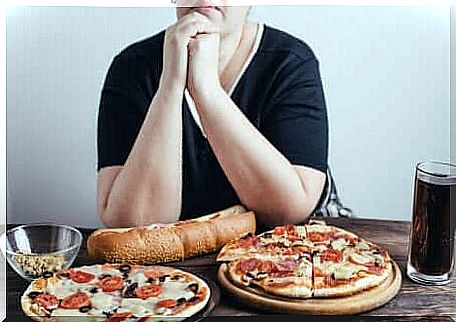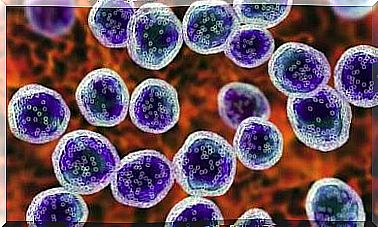Food Addiction: Causes And Solutions

Are you hungry at all times? Can’t avoid the midnight snack? Do you eat more than you would like and feel guilty afterwards? If you feel like you are addicted to food, the problem is probably emotional.
The feeling of not being able to control one’s appetite could be distressing, as they are aware that they are not only damaging their physical appearance, but also their health. The solution is to change your relationship with food. In this article we will tell you how.
Causes of food addiction
Eating is essential for survival. It is the action by which the body obtains the nutrients it needs to stay healthy every day. The problem is the quantity of food ingested and, especially, the selection of the same.
Often it is difficult to eat optimally and opt for products with low nutritional value and a high caloric index. But what leads to these harmful behaviors?
Disconnection from your body
Food addiction is often caused by the inability to recognize one’s bodily sensations. At birth, the body recognizes hunger signals and requires nutrients; one therefore strives to obtain food.
Over time, the ability to correctly interpret these sensations is lost. This phenomenon happens for several reasons. First, because eating is associated with family gatherings, companionship and interaction. It becomes a social and pleasant act outside of its nutritional value.
On the other hand, the accelerated pace of current life and stress turn into an obstacle to take a break and listen to the body. It diminishes our ability to recognize when hunger is real and when it comes to boredom or the desire for a moment of social connection.

Emotional hunger
This concept refers to the habit of using food as a regulator of emotions. Have you noticed that you eat more when you are anxious, sad, overwhelmed or disappointed?
This all has an explanation: some foods stimulate the pleasure-celebrating circuit, whereby the brain releases various hormones that produce pleasant sensations. Ingestion is accompanied by feelings of relief, satisfaction and happiness.
Unfortunately, however, this is a transitory state that does not constitute an effective or permanent solution. In a short time, the pleasant effects wear off and the negative emotions return, along with the feeling of guilt for having eaten out of control.
Restrictive diets
If you have been struggling with your food problems for a long time, you have probably found yourself in this paradoxical situation: following very restrictive diets can increase the uncontrolled desire to eat unhealthy foods.
Being forced into an extremely strict eating style, which excludes many food groups, increases food addiction. This prevents you from following the diet without falling into compulsive ingestion.
Furthermore, it may happen that the weight lost with so much effort can be regained in a short time after the end of the diet. The body asks for what has been eliminated or reduced in such a radical way.

How to fight food addiction
Obviously, eating is essential to survive; therefore it is not an activity that can be avoided, as happens for others. The solution in this case is to change the relationship with food, paying more attention to its nutritional function. This will lead to conscious eating.
For this purpose, it is first of all essential to reconnect with the body and learn to listen and interpret the signals it sends. In other words, it’s about recognizing when you are really hungry and when it comes to emotional hunger or due to stress or anxiety.
On the other hand, it is important to adopt strategies that are useful and effective in dealing with negative emotional states. The aim is to stop using food as a regulator of emotions, as other models are learned to manage them. Therapeutic writing or meditation are alternatives that can be helpful.
Finally, establish a healthy relationship with food. This means to stop seeing him as an enemy or a consolation. Remember that food is the gasoline your body needs, and you need to learn how to select it based on your nutritional needs.
Eating in a healthy and balanced way, without eliminating or condemning any food; eat with measure and, above all, with conscience.









